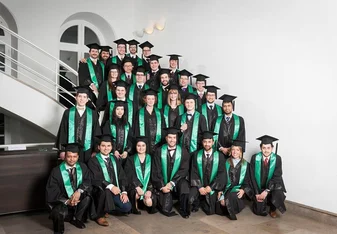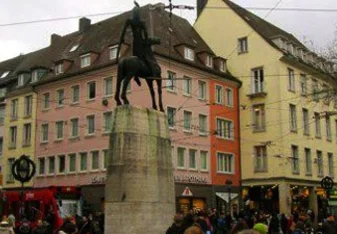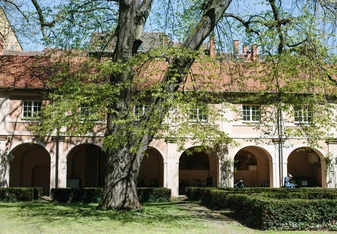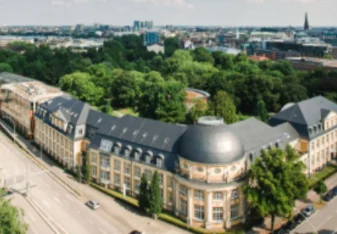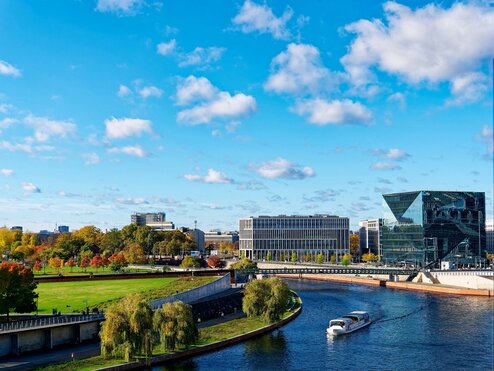
The 8 Best Cities to Study Abroad in Germany
International students love studying in Germany and we think you will, too. Discover the eight best cities for your next study abroad adventure.

With its legendary Oktoberfest celebrations, affordable tuition, scholarship opportunities, fairytale-inspired towns, and natural charm, it’s no wonder why Germany is a go-to study abroad destination.
Germany is home to over 400 universities scattered across large, bustling cities as well as smaller towns. With such a large, diverse selection of locations across Germany, international students have plenty of choices when choosing where to study abroad in Germany.
To help you narrow down your options, we’ve highlighted the 8 best cities to study abroad in Germany. Read on to find your perfect destination!
Why study abroad in Germany?
From an educational, financial, and cultural standpoint, there are many reasons why international students should consider Germany as their study abroad destination:
- Free tuition: For non-EU international students, the majority of public universities do not charge tuition. You’ll simply pay administrative fees ranging from around $100-$400 USD per semester. The exception to this rule is universities in Baden-Württemberg which charge around $1,700 USD a semester.
- Excellent standard of education: Some of Europe’s top-ranked universities are located in Germany and all offer high-quality education, world-recognized research facilities, and a wide variety of English-taught subjects. This makes education in Germany not only impactful but accessible to international students.
- Selection of universities: With over 400 universities, international students have plenty of choices when studying in Germany. While cities such as Berlin, Frankfurt, or Munich are international hubs, English-taught programs are widely available and accessible in smaller cities and towns.
- Scholarships: International students can apply for a range of scholarships when studying abroad in Germany. The German Academic Exchange Service - also known as DAAD - offers scholarships and grants to international students to fund their studies and research in Germany.
- Unmatched student support: German universities have plenty of experience welcoming students from abroad, making them among the best in the world when it comes to accommodating international students. Universities often offer free German language lessons and have services dedicated to supporting diverse student needs.
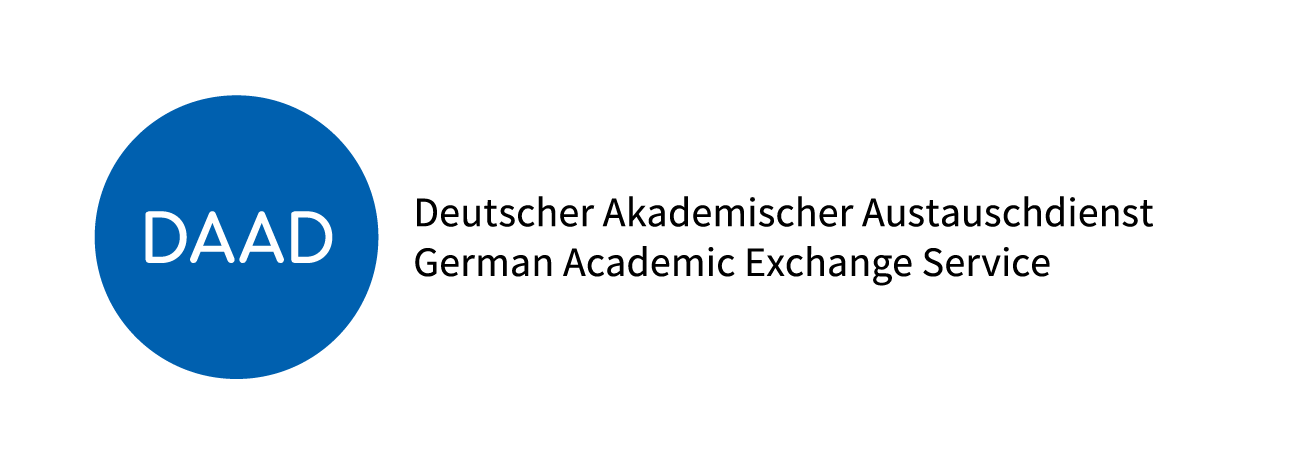
Funding Opportunities to Study in Germany Through DAAD
The German Academic Exchange Service, known by its acronym DAAD in German, is an organization that offers various scholarships and research grants to study in Germany for all academic levels and fields. If you've ever considered studying in Germany, check out the informational page DAAD and Go Overseas have created together to provide comprehensive overview on studying in Germany.
Berlin
Great for art & culture

🎓 Top universities: Humboldt University of Berlin (126th), Free University of Berlin (97th), Technical University of Berlin (147th)
💰 Average monthly cost of living: $1,000-$1,500 USD
It’s difficult to consider studying in Germany without Berlin coming to mind. Berlin is home to the country’s largest concentration of universities and research institutions, making it an educational hotspot.
Berlin is not only Germany’s capital but also its arts and cultural hub. International students can soak up history by taking in the Berlin Wall’s rebellious graffiti and iconic murals or taking a stroll near the Brandenburg Gate, a symbol of national reunification.
When you’re not on campus, you can enjoy the city’s numerous art galleries, interactive exhibitions, flea markets, film festivals, and other delights. JazzFest, Berlin Art Week, and the Carnival of Cultures are just some of the many spectacles hosted in the dynamic capital. Don’t forget to take advantage of student discounts whenever possible!
Study Abroad Programs in Berlin
Frankfurt
Great for business and finance majors

🎓 Top universities: Goethe University Frankfurt (309th), Frankfurt School of Finance and Management
💰 Average monthly cost of living: $1100-$1,800 USD
As the home to the European Central Bank, Bundesbank, and one of the largest Stock Exchanges in the World, Frankfurt is a European financial capital. Naturally, Frankfurt offers insight and experience for aspiring business professionals who want firsthand experience in a vigorous European economy.
Due to its financial and economic significance, Frankfurt attracts students and professionals alike from all over the globe to work and study. The city maintains a charming mix of old and new – its modern financial district contrasts with pockets of heritage like that of Römerberg, an idyllic town square boasting historical monuments, cute cafes, and half-timbered houses.
If you’re an avid reader, you’ll be pleased to hear that Frankfurt is also home to one of the largest trade fairs for books, whose origins date back more than 500 years.
Study Abroad Programs in Frankfurt
Freiburg
Great for nature & outdoor lifestyle
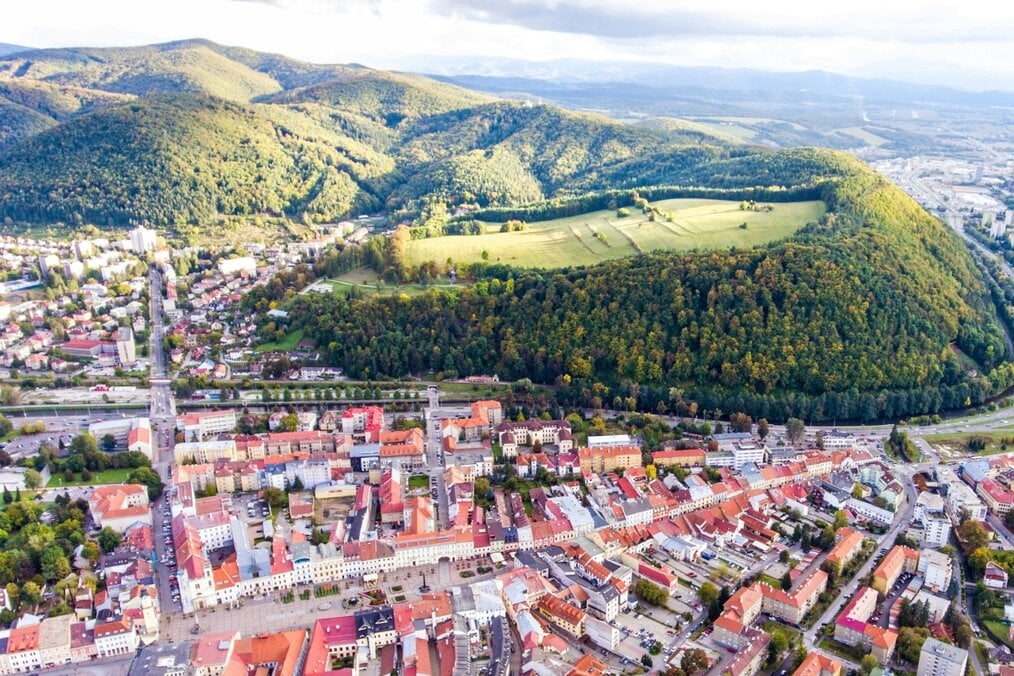
🎓 Top universities: Albert Ludwig University of Freiburg (212st)
💰 Average monthly cost of living: $900-$1,600 USD
Known as the sunniest place in Germany, Freiburg im Breisgau is a picturesque and vibrant university city on the outskirts of the Black Forest. With crisscrossing canals, surrounding highlands, endless greenery, and a fusion of modern and medieval architecture, Freiburg is a haven for those who enjoy spending their time outdoors.
Its small-town feel, environmentally conscious attitude, and access to green spaces, cafes, bars, and restaurants combine to create the perfect student city. In addition to its eco-centric qualities, 22,000+ students, including around 4,000 international students, benefit from top-notch education in fields such as IT, medicine, environmental studies, social sciences, and more.
Over 20 Nobel laureates have studied, researched, and taught at the Albert Ludwig University of Freiberg. Additionally, the university is a member of Eucor - The European Campus, a tri-national alliance of European universities with the goal of building and sharing an enlightening scientific space. Great for networking and exchange opportunities!
Study Abroad Programs in Freiburg
Munich
Great for internship opportunities
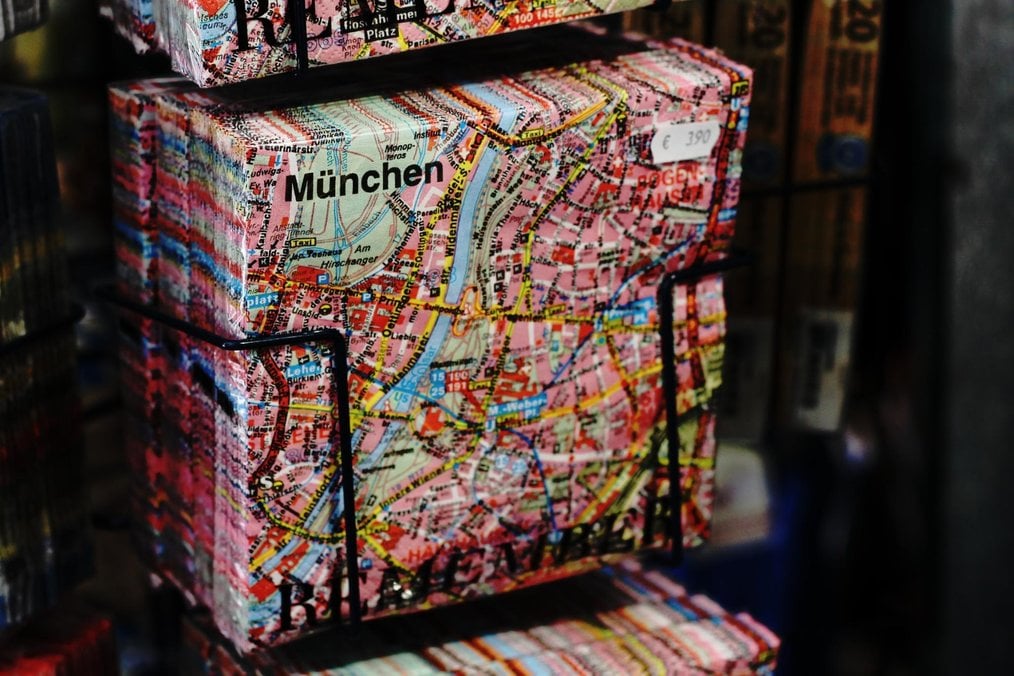
🎓 Top universities: Technical University of Munich (28th), Ludwig Maximilian University of Munich (59th)
💰 Average monthly cost of living: $1,200-$2,000 USD
Nestled in the heart of Bavaria, Munich is known as the “beer capital of the world” and the birthplace of Oktoberfest. However, this southern German city’s reputation for revelry is matched by its selection of prestigious universities. While the Technical University of Munich offers many entrepreneurial-focused courses, Ludwig Maximilian University is one of Europe's leading research universities. Here, undergraduate and postgraduate students alike can find plenty of internship opportunities.
Sights to see in Munich include some of the country’s most beautiful gardens, famous orchestras, and Baroque architecture. Munich is also less than a two-hour drive from the iconic (and highly Instagrammable!) symbol of the Romantic period, Neuschwanstein Castle.
Despite being the third-largest city in Germany, it's known for being a friendly place that maintains a nice small-town feel. Many of the main sites are within walking distance from the city center, including the symbolic Frauenkirche Cathedral which dates back to 1494.
Study Abroad Programs in Munich
Hamburg
Great for applied science majors
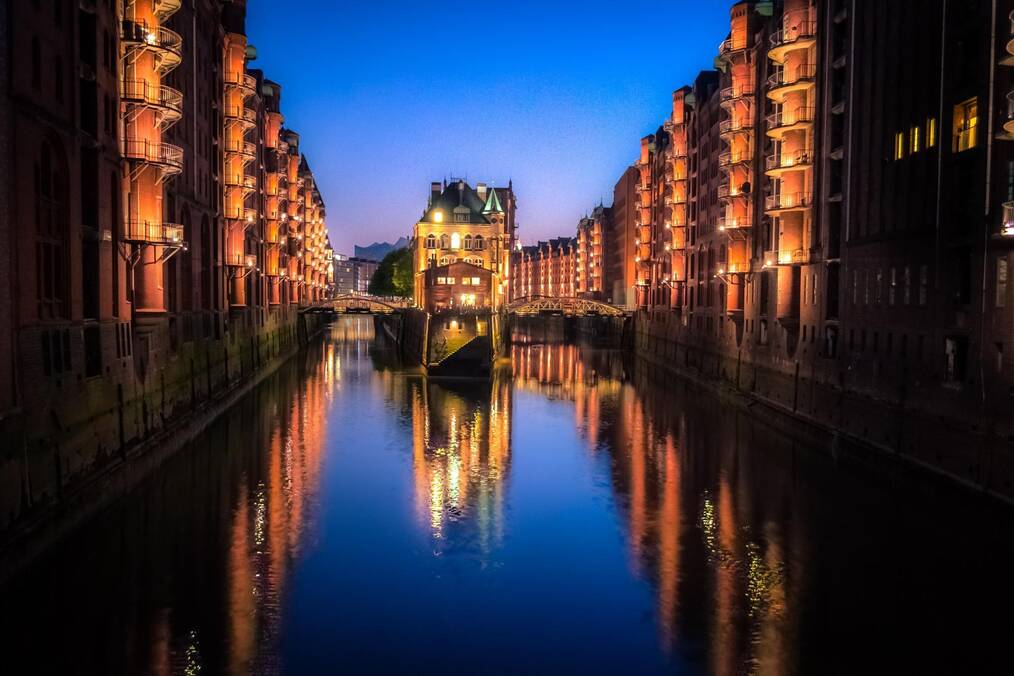
🎓 Top universities: University of Hamburg (191st), Hamburg University of Applied Sciences, Hamburg University of Technology
💰 Average monthly cost of living: $900-$1500 USD
Hamburg’s emphasis on innovative structural designs makes it a great place to study architecture, structural engineering, and other subjects. The city has several universities that cater to architects and science majors. However, studying architecture or applied science isn’t the only thing to look forward to in Hamburg, as this port city harbors the perfect lifestyle for students.
Excellent transportation combined with idyllic parks, edgy architecture, hundreds of winding canals, and thriving nightlife make Hamburg one of the most dynamic cities in Germany. Take in breathtaking 360-degree city views from the top of the iconic St. Michael’s Church, or relax with a canal-side cappuccino between classes!
Study Abroad Programs in Hamburg
Marburg
Great for fairytale-esque scenery

🎓 Top universities: The Philipps University of Marburg (801st)
💰 Average monthly cost of living: $750-$1200 USD
The intimate university town of Marburg, just an hour north of Frankfurt, is home to the Philipps University of Marburg, the oldest Protestant institution in the world. The University of Marburg has been welcoming students for more than 500 years and is a driving source of life in the town.
Around 30% of its population of 80,000 is made up of university students, creating a student-friendly environment. Around 12% of these university students are international students, which fosters a diverse and hip community in a historic town setting.
Marburg is a classic German city built around the hilltop Landgrafenschloss castle and 13th Century St. Elizabeth’s Church. With charming timber-framed houses that line the narrow, cobbled streets lined with bars and cafes stretching out from Marktplatz Square in the center of town, Marburg will convince you that you’re living in a fairytale. After all, you’ll be walking in the shoes of the Grimm Brothers, whose stories have traveled the world.
Aachen
Great for life sciences & STEM majors

🎓 Top universities: RWTH Aachen University (99th), FH Aachen
💰 Average monthly cost of living: $900-$1,300 USD
Aachen is one of Germany’s leading cities for innovation and has two key technology universities. However, students may be surprised to see how much this quaint town has to offer beyond academics.
Although somewhat under the radar, Aachen is an enchanting town that exhibits plenty of Roman history, medieval artifacts, and Gothic architecture. As Emperor Charlemagne’s preferred place to stay, he was buried at Aachen Cathedral, one of the oldest in Europe, cementing its cultural and political significance for the Frankish Empire.
When you’re not visiting historical monuments, you can hike through volcanic ruins along the long-distance Eifelsteig trail. If you want to venture further afield, Cologne and Dusseldorf are a short trip away, and Aachen shares borders with both Belgium and the Netherlands!
Lüneburg
Great for medieval history & architecture
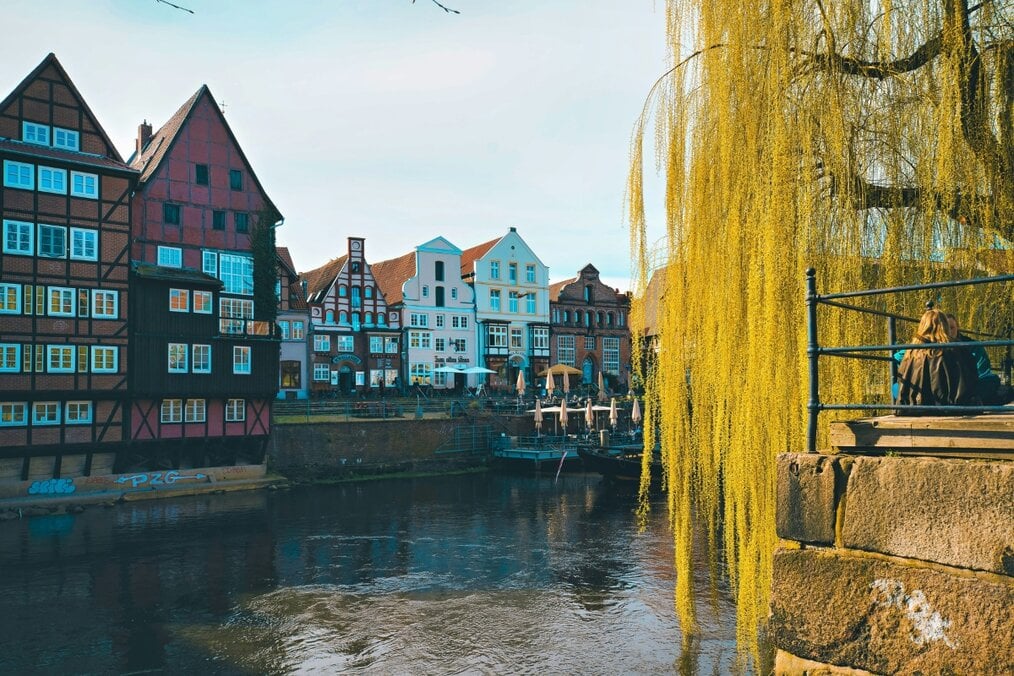
🎓 Top universities: Leuphana University
💰 Average monthly cost of living: $850-$1,200 USD
A mere 30 miles south of Hamburg lies Lüneburg, a sleepy town accented by red-brick Gothic buildings, medieval heritage, and one of central Europe’s major rivers, the Elbe. As one of the few towns in Northern Germany that wasn’t destroyed during the World Wars, it has preserved much of its structural charm.
Lüneburg’s only university, Leuphana University, offers students excellent modern research, but there’s much more to the town than just studying. Students often praise the city’s small-town feel, market squares, charming pubs, and accessibility to outdoor activities on its rivers, canals, and heathlands. If you want to fill your itinerary, consider strolling through fields of calluna flowers, visit the Water Tower to gaze upon the whole town or gain insight into their unique sustainability goals.
Study abroad programs in Lüneburg
Find the perfect place to study in Germany!

No matter where you choose to study in Germany, each location presents excellent studying opportunities, exciting student lifestyles, and dynamic international communities. Even though it shares borders with many European countries, you may want to spend the whole time in this fantastic country!
Read more about studying abroad in Germany:





